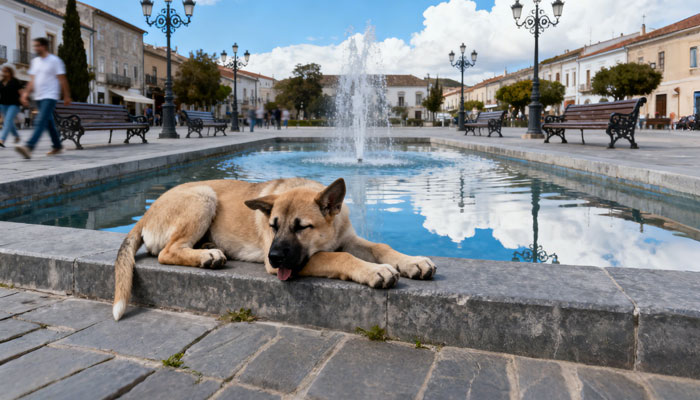Raising Anatolian Shepherd Dog Puppies

One of the best guard dogs in the world, Anatolian Shepherd, in outstanding features, has to be developed in its puppy stage. This achievement will deeply affect its adult temperament and abilities. Their upbringing should be done in an environment where loving care, patience, and scientific methods are practised with a view to turning them into qualified family companions or guard dogs.
Traits of the Anatolian Shepherd Puppy: Fun and Playing while Showing Guarding Behavior
They are eager to explore the world around them with their boundless energy and inquisitiveness that is typical of them during the first years of their lives. Usually, they resort to sniffing and chewing to become more familiar with their surroundings. Protective instincts are incorporated into these pets from their 3-6 month age just like any other species. At first, this might be seen as guarding by barking at the coming stranger or holding strongly your unattended toys or food bowl, the first time they show the specific nature of the breed.
Though the behavior is unstable at this stage and easily swayed by the external things. Changes in the environment may trigger nervousness in animals, while overexcitement might result in mischievous acts. The owners responsible must patiently spend time with their puppies to earn their trust yet being careful not to overindulge them since it may result in stubbornness or willfulness.
How to Care for the Anatolian Shepherd Puppy: the Most Important Aspects of Diet, Health and Training
Diet Requirements: The young of the Anatolian Shepherd are in a growth stage, so they need sufficient quantities of proteins, calcium, vitamins, and minerals to be able to grow both their bones and muscles. Select food for large-breed puppies. The amount of food should be controlled according to the dog’s weight so as not to predispose the dog to obesity and hampering the health of the joints. Ensure that the diet is safe by not allowing them to eat any toxic substances such as onions or chocolate.
Regarding healthcare, the sick puppies of the Anatolian Shepherd should receive vaccines on time to prevent infections such as distemper and parvovirosis. The prevention of parasites should be carried out not only internally but also externally in order to minimize the risk of infections. Moreover, the breed is susceptible to hip dysplasia, so hard exercises with high impacts should be avoided during the early stage. Under the guidance of a vet, a moderate joint-protective training program is highly encouraged.
Training and socializing are the main areas where the care of an Anatolian Shepherd puppy is concentrated. The basic command training such as “sit” and “come” should be started at the age of 2 months so as to foster obedience. Following the encouragement of the 3 months mark, the pup is made to encounter various social situations to meet different people, other pets, and different environments to become less aggressive and shy when grown. Training should be done in a way in which positive reinforcement is applied, that is, reward is given when an acceptable behavior is displayed to build the trust and not cause the confidence of the puppy to be lowered when harsh scoldings are used.
Anatolian shepherd dog owner must be available to put in the effort to raise the dog. The strengths of the breed can be fully harnessed through scientific dietary management, diligent health care, and patient training. The resultant effect is a dog that is gentle and reliable, capable of not only fulfilling protective duties but also making family life warmer and safer.
admin
-
Sale!

Washable Pet Cooling Pad for Cats and Dogs
$10.99Original price was: $10.99.$9.99Current price is: $9.99. This product has multiple variants. The options may be chosen on the product page -
Sale!

Washable Cat Window Hammock Cooling Bed
$23.99Original price was: $23.99.$22.99Current price is: $22.99. -
Sale!

Tropical Amphibian Rainforest Tank, Lizard Cage
$38.99Original price was: $38.99.$36.99Current price is: $36.99. -
Sale!

Silent 4-in-1 Waterproof Charging Dog Hair Trimmer
$49.88Original price was: $49.88.$47.99Current price is: $47.99.